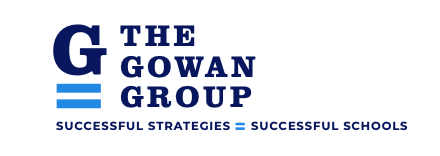In his recent article in the Atlantic, Thomas Kane highlights what the research tells us about children’s learning loss over the course of the pandemic. The news he shares is sobering and a clarion call for schools – and their communities – to develop clear, ambitious, and equitable plans to ensure that their students are able to catch up, or at the very least that the gap between where students are and where they ought to be is narrowed.
Independent Schools have not been immune from the challenges posed by the pandemic, and they would do well to assess their students, determine what gaps exist, and develop concrete plans to address them. While some schools may want to soft-peddle the learning losses their students have experienced, they would do well to be highlighting the strategies that they plan to put into place to close the gap and ensure student progress (Kane suggests extending the school year, adding double periods in math and reading, and creating small tutoring cohorts, all of which have been shown in research to be effective in closing achievement gaps).
Aggressive, thoughtful, research-validated strategies will appeal to many parents who wonder how their children will ever catch up. Helping parents understand the challenges their children face and what their school proposes to do to address those challenges can serve as welcome transparency, help build trust, and support student retention. On the recruitment side, families who feel their current schools are not responding quickly enough may be looking for alternatives. Independent Schools that actively promote the plans they have developed to close the pandemic gap will be better positioned to recruit new students from families who demonstrably care about their children’s future.
One area that Kane does not address, but which has gotten tremendous press coverage, is the social and emotional toll that the pandemic has taken on young people, call it the Social-Emotional Learning (SEL) gap. Independent Schools are uniquely positioned to support students in the ongoing development of their social skills and emotional resilience as students are so well known by their teachers, advisors, and coaches. Independent Schools would do well to highlight all that they do to support students in these critical areas of development that are so often neglected, both to assure current parents that their children are being cared for in all respects, and to help prospective parents understand one of the critical values of an Independent School education.
This is a rare opportunity for Independent Schools to demonstrate the value that they bring to the educational experience of their students. It all begins with assessing where each school population is in terms of academic and SEL gaps and then committing the resources necessary to closing them.
Written by Kolia O’Connor
Managing Director
